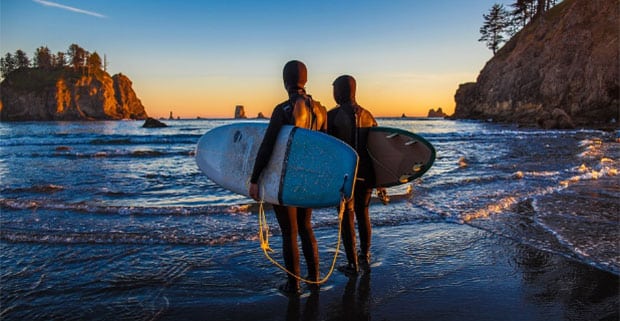10 Proven and Effective Tips for Successful Saltwater Fishing for Beginners
Tips For Saltwater Fishing for Beginners
Saltwater fishing is a relaxing activity that many aspiring first time anglers want to experience. Fishing on the sea can make you fish for new species, but it can be more challenging since it is larger. Those who try saltwater fishing for the first time end up are more hooked.
Because the ocean and the fishes within it are different from those you find in ponds, streams, and lakes, there are other rigs, sinkers, and skills to know. So before you head out and do saltwater fishing successfully, take some time to learn about its ins and outs first.
1. Know the Types of Saltwater Fishing Ideal for Beginners.
There is no shortage of destinations to choose from when it comes to saltwater fishing. You can cast off your local beach’s sands or venture out onto the open ocean in a canoe, kayak, or boat. As long as you are in the ocean and using a saltwater fishing gear, you will go. Choosing where to finish depends on your preference and what fish you want to catch.
Surf Fishing
Surf fishing is when you will be standing on the shoreline or wading into the surf. Doing this can make you catch most saltwater fish without going out onto the ocean. It is easy to learn and great for many beginners.
For this, you need to have a 12-15 feet long surf fishing rod and combine it with a 20 to 25-pound test line. For the fishing bait, you will need a shrimp or a squid.
Backwater and Flats Fishing
If you want to catch a game fish like Tarpon, then backwater and flats fishing from kayak and flats boat are one for you. You can also find various species in these coastal waters like Spotted Sea Trout and Flounder.
For this, you need a 6 to a 7-foot medium-action saltwater fishing rod and a spinning reel with a 15-pound test weighted line. For the bait, a gold metal spoon is your go-to lure. Make sure you invest several of these and some soft plastic jigs in case of a line break.
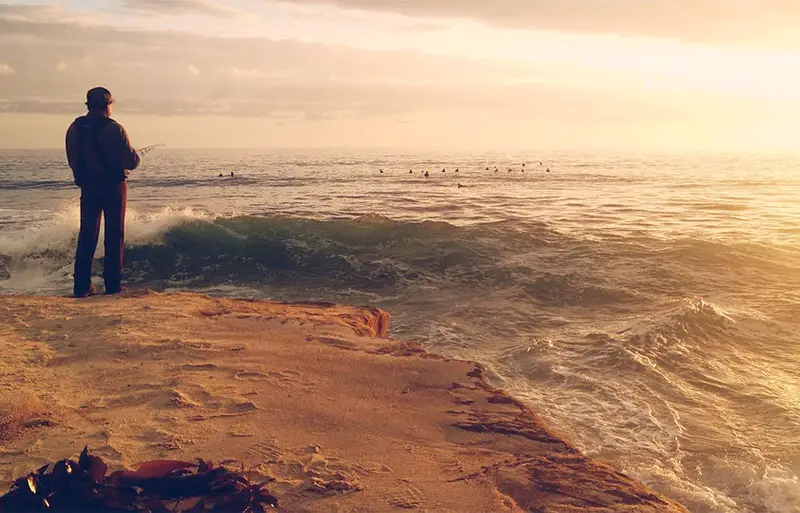
2. Bring Saltwater Rods and Reels
Choosing a saltwater rod and reel depends whether you want to fish with a bait cast, troll, or metal jigs, your fishing location, and the type of fish you want to catch. Some of the things to remember:
- Longer rods cast farther, but shorter rods are more powerful when fighting the fish.
- The power on a rod refers to the rod’s capability of lifting.
- High-speed reels and for fast baits, low-speed reels are more powerful when fighting the fish.
- Match the reel to the rod’s line weight.
- To pick the right rod, the lure weight should match the size of the saltwater bait.
3. Carry the Saltwater Fishing Tools
Wherever you go for saltwater fishing, the Saltwater gaffs and nets, pliers and scissors, fishing knives, and hook remover should always be with you.
First, gaffs and nets make it easier and safer for catch-and-release fishing. The pliers and scissors are used to cut wire, tighten knots, and remove hooks. Fishing knives, on the other hand, are for cutting bait and cleaning the fish. Lastly, the hook remover makes removing hook safer and faster.
4. Don’t Forget the Bait.
Saltwater fishing bait depends on how the fish you want to catch feeds. This considers the sound, scent, and movement. Putting these three together, you should be able to determine the kind of bait you need to use to trick the fish and lure it to our line. Hence, it is either you will be using live or artificial bait to saltwater fish.
Live saltwater fishing bait includes squid, shrimp, mussels, clams, crabs, and baitfish. Artificial saltwater bait includes soft plastic lures, spinnerbaits, spoon fishing lures, plug fishing lures, poppers, metal jigs, and lead-headed jigs.
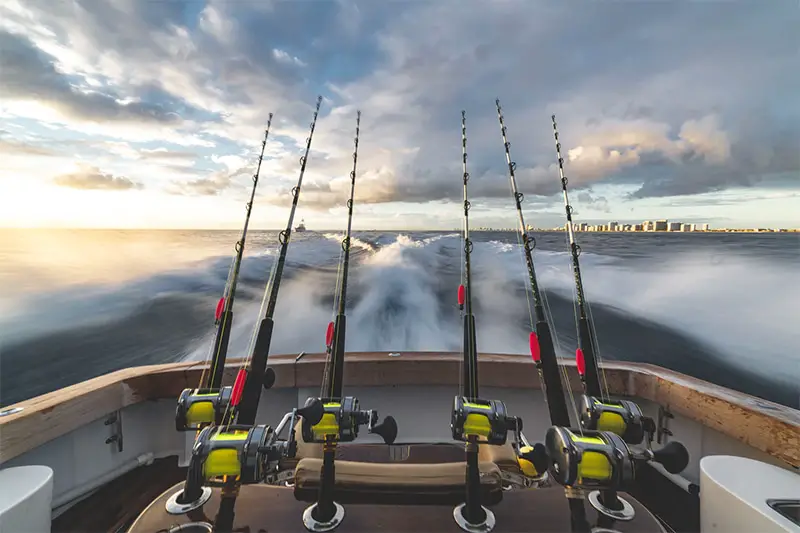
5. Acquire a Fishing License
Acquiring a fishing license helps to protect fish populations. It also forms a circle that starts when you pay a licensing fee. This ultimately benefits you in the form of plentiful fishing.
When a state implements fishing regulations, they apply these limits to the species and amount any fisherman can catch and keep in a day. These limits include a fishing license, so people will understand to catch limits. Moreover, conscientious anglers can also report poachers – who hunts or fishes outside of regulations and standards – with noticeable heavier hauls allowed by law.
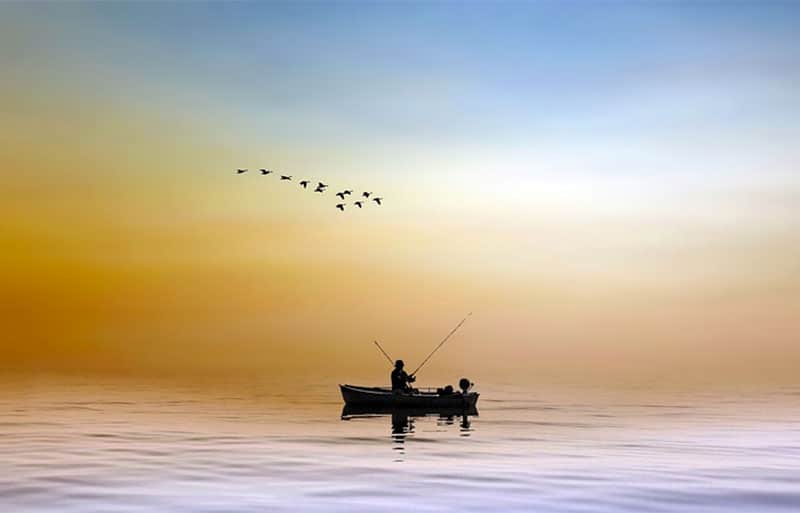
6. Learn the Saltwater Fishing Techniques
Saltwater Fishing has been popular for thousands of years. During this time, many techniques have been developed to land a perfect catch.
- Spearfishing can be performed either on-land or underwater while scuba diving or snorkelling. However, they may choose to do this technique while freediving. This method will require you to hold the breath while diving and attempt to impale or puncture a fish by throwing a spear by hand.
- Hand-gathering is a fishing method that does not require any equipment. Here, you simply use your hands to catch a variety of sea creatures. This practice works best during low tide because the waves are not rolling in.
- Cast-net fishing is one of the most efficient fishing methods to catch small or medium-sized fishes. This involves throwing a cast net over the water, which will open and land over a huge area. It is also one of the most sustainable methods since it does not damage the area.
7. Try Sunrise or Sunset Fishing
Even if fishes can be caught at any time of the day or night, the consensus among anglers is that certain times provide the best opportunities to succeed saltwater fishing. If they were surveyed about their favourite time of day to fish, the results would show the preference for the early morning hours around sunrise.
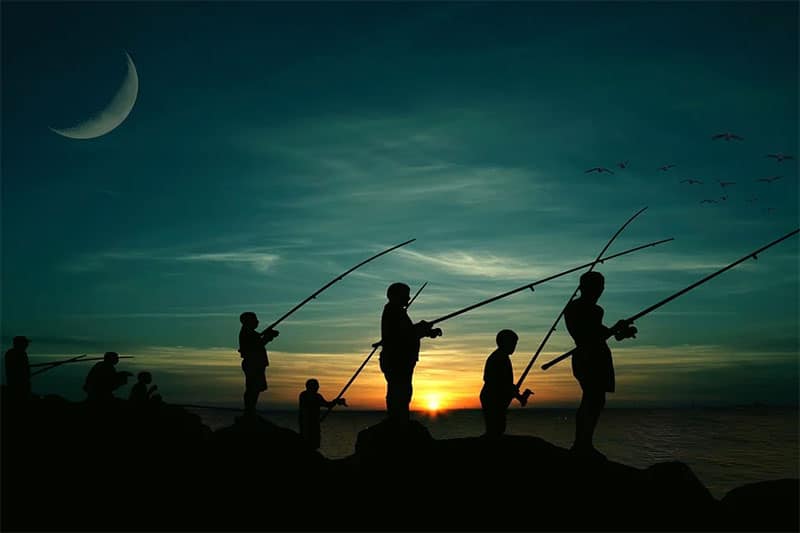
8. Learn the Tides and Moon Phase
The moon affects fishing as it causes tides. On average, the best time to do saltwater fishing is before the full moon. The worst time is after it. But then again, there is always decent fishing to be done whatever was going on in outer space.
9. Speak with the Locals
Local anglers know saltwater fishing better than any general guide, you know. Once you have chosen the place and know what fish you are going for, speak to the fishermen in that area and learn how they get successful strikes.
10. Fishing with a Guide
Hiring a fishing guide can help put you a year ahead of the game. Sometimes, doing self-taught in developing your skills may be time-consuming and more amount of money wasted. Hence, it is wiser and cheaper to hire someone who can teach you the basics and processes. This could mean learning the unfamiliar fisheries and other water structures, the types of fishes, your gears and equipment, tackle and techniques, navigating safely, and more.
Hiring a guide is an investment, too, as it helps to improve your learning curve and feel content, putting the pressure and safety into his hands. And because you pay for someone to guide you, you can ask questions, take notes, and learn much with just a day discovering with him.




